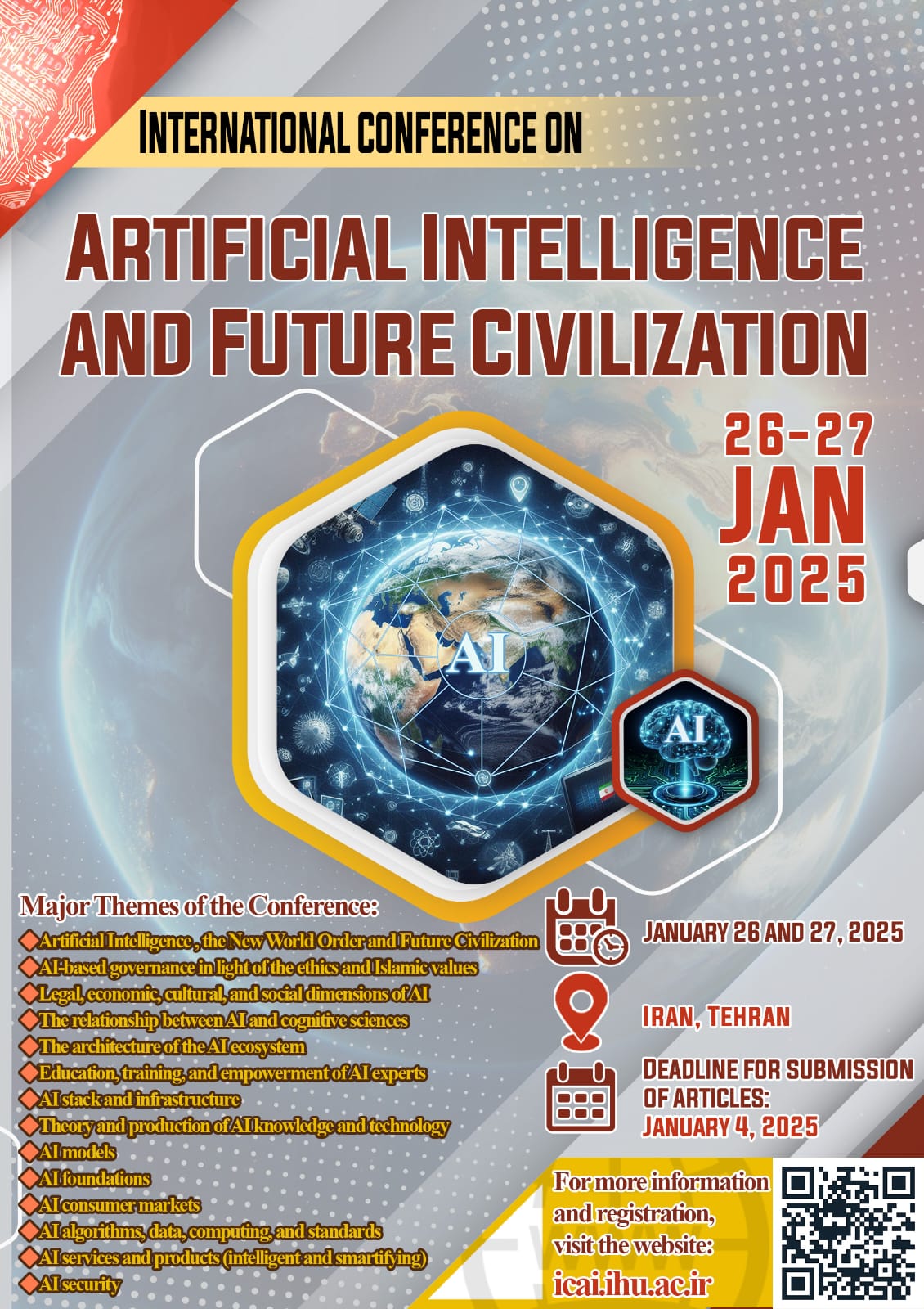Total: 0Toman
INTERNATIONAL CONFERENCE ON ARTIFICIAL INTELLIGENCE AND FUTURE CIVILIZATION
Artificial Intelligence, the New World Order and Future Civilization

Themes of the Conference
Major Themes of the Conference:
1. Artificial Intelligence, the New World Order and Future Civilization
2. AI-based governance in light of the ethics and Islamic values
3. Legal, economic, cultural, and social dimensions of AI
4. The relationship between AI and cognitive sciences
5. The architecture of the AI ecosystem
6. Education, training, and empowerment of AI experts
7. AI stack and infrastructure (processing, networking, tools, CPU, GPU, VPU, etc.)
8. Theory and production of AI knowledge and technology
9. AI models
10. AI foundations
11. AI consumer markets
12. AI algorithms, data, computing, and standards
13. AI services and products (intelligent and smartifying)
14. AI security
Introduction
The primary components of the geometry of the new world order and the future civilization, based on AI include: smart governance, smart life, smart cities, smart education, smart healthcare, smart economy, global open internet, smart media, and smart defense and security.
These components indicate that the world is undergoing a paradigm shift in civilization; the rules and components of the previous civilization are no longer valid within the equations of this new paradigm.
In this civilization, to maintain sovereignty, it is essential to understand the equations of this paradigmatic space and act according to its rules.
Accordingly, the "International Conference on Artificial Intelligence and Future Civilization", hosted by Imam Hossein University in collaboration with universities and scientific and industrial centers from other countries, aims to achieve the following objectives:
1. Understanding and explaining the role of AI in shaping the future of human civilization and the geometry of the new world order.
2. Understanding and explaining the foundational layers for the production and development of AI worldwide.
3. Presenting the latest scientific and technological achievements in the global AI ecosystem.
4. Documenting and researching the formation and development of AI worldwide.
5. Providing practical solutions for applying AI in various fields of society and industry.
6. Developing educational texts and curricula for various levels of schools, universities, and educational centers.




.jpg)
















.jpeg)

Write your comment.